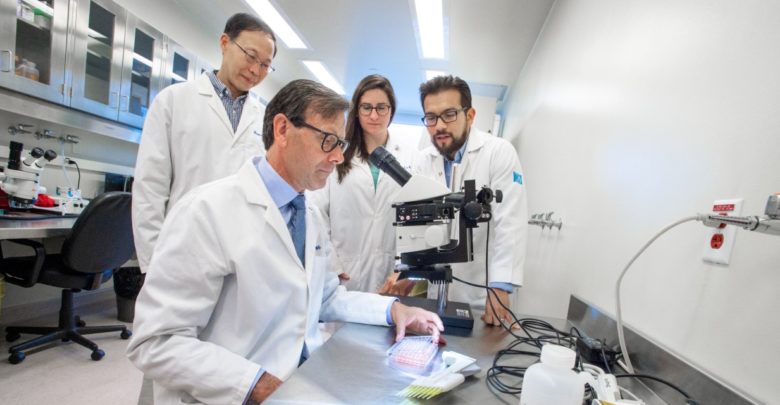 Richard Siemens
Richard SiemensUniversity of Alberta diabetes researchers are receiving promising results in a clinical trial where stem cells are used to produce insulin. They have now started to use gene editing to streamline the process and eliminate the need for anti-rejection drugs.
The clinical trial works with a company called ViaCyte to insert miniature devices under the skin that distribute stem cells into the bloodstream. Early results showed that one third of the patients showed insulin in the bloodstream and approximately 65 per cent of patients showed visible human islet cells created by these stem cells. Islet cells are clusters of cells in the pancreas contains that produce hormones, including insulin.
This trial still requires anti-rejection drugs, but at a smaller quantity than was needed before which provides researchers with “steps towards the end” to eliminate the use of these drugs. Instead of using an outside chemical such as these drugs, the researchers “are looking for a biological solution to a biological disease.”
Dr. James Shapiro led the team for the Edmonton Protocol, which created a way to safely transplant islet cells into patients from donors. Although this protocol changed the game for those with diabetes, Dr. Shapiro mentioned two downsides from it: the need for anti-rejection drugs, and the ratio between the amount of people with diabetes to available donors.
“There will never be enough donors to help everyone with diabetes, so we need to come up with a better way,” he said.
At the end of January, Dr. Shapiro and his team performed the first in-human experiments of a new process where the stem cells that are inserted are gene edited using a process called CRISPR-Cas9.
“Essentially, we cut out the part that the body reads as foreign so there is no need for anti-rejection drugs,” Dr. Shapiro said. “This is something that has never been done before for this type of study.”
Dr. Shapiro, who has been working towards a solution for those with diabetes for 38 years, believes that this research is a “huge step into the right direction” and that they “are closer to the end than they ever have been.”
He acknowledged working at the U of A is a “privilege that has provided many opportunities to advance this research that might not have been provided elsewhere.”
Once being an unsure undergraduate student himself, Dr. Shapiro urged students to get into research and “never take no for an answer” — because anyone has the ability to change the world.




